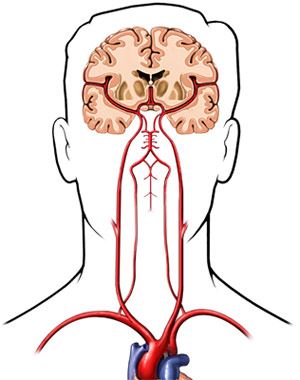Syncope (Fainting)
Syncope is a common complaint in the emergency department. Although most potential causes are benign and self-limited, others are associated with significant morbidity and mortality. Therefore, it should be treated as a serious medical condition. Anyone who experiences an acute onset of sweaty palms; nausea, vomiting or lightheadedness should call 911 immediately.
The acute onset of these symptoms could indicate non-life-threatening factors, such as overheating, dehydration, heavy sweating, exhaustion or the pooling of blood in the legs due to sudden changes in body position; or several serious heart conditions, such as bradycardia, tachycardia or blood flow obstruction.
Syncope is the medical term for fainting or passing out. It is caused by a temporary drop in the amount of blood that flows to the brain. This leads to loss of consciousness and muscle control. The person then falls down or over, which allows blood flow to return to the brain. Returning blood flow allows the person to regain consciousness, although feeling confused for a bit. Syncope usually lasts only seconds or minutes.
If you are concerned about fainting, an expert RWJBarnabas Health cardiovascular specialist can help determine the cause and discuss treatment.

Medical Illustration Copyright © 2019 Nucleus Medical Media, All rights reserved.
Types of Syncope
- Vasovagal syncope. The most common type of syncope. Occurs when you faint because your body overreacts to certain triggers, such as the sight of blood, extreme emotional distress, dehydration, anxiety, pain, hunger, etc.
- Postural syncope (postural hypotension). This type of syncope occurs due to an abrupt change in body position (for example, lying down to standing).
- Cardiac syncope. This type of syncope is caused by a heart or blood vessel condition, such as heart arrhythmias, congenital heart disease, heart valve disease, aortic stenosis, or heart failure.
- Neurologic syncope. This type of syncope is caused by a neurological condition such as seizure and stroke or transient ischemic attack. Migraines are a less common condition.
Causes of Syncope
Syncope is a symptom that can be due to several causes. Many non-life-threatening factors, such as overheating, dehydration, heavy sweating, exhaustion or the pooling of blood in the legs due to sudden changes in body position, can trigger syncope. However, certain conditions, traits or habits may also raise your risk for syncope. These conditions are known as risk factors and include:
Non-modifiable risk factors: These factors are irreversible and cannot be changed. The more of these risk factors you have, the greater your chance of syncope.
- Male gender
- Can happen to anyone; however, syncope is more common for adults over the age 80
- Family history/genetics
Other conditions that contribute to syncope:
Symptoms of Syncope
Common symptoms of syncope include:
- Nausea and/or vomiting
- Sweaty palms
- Lightheadedness
- Blacking out
- Changes in vision such as seeing spots or having tunnel vision.
- Headaches
Diagnosis of Syncope
People who experience the warning signs of fainting or dizziness, nausea and sweaty palms should sit or lie down. Anyone with syncope should receive an initial evaluation, including detailed physical and history examinations. Your doctor may also suggest one or more diagnostic tests or procedures to help determine the cause of your syncope:
Treatment of Syncope
Your treatment options will depend on what is causing your syncope and the results of your evaluation and testing. The goal of treatment is to keep you from having episodes of syncope. Treatment options include lifestyle changes.
For those dehydrated, it may beneficial to increase their salt and water intake.
For those without any medical condition, your doctor will provide certain guidelines to follow.
For those with a medical condition, your doctor will start you with antiarrhythmic medications that will help control your heart’s rhythm. If condition is more serious, your doctor will suggest more drastic options such as:
At RWJBarnabas Health, we are the destination for ensuring your heart health. If you are concerned about fainting, connect with one of our expert New Jersey cardiologists.
